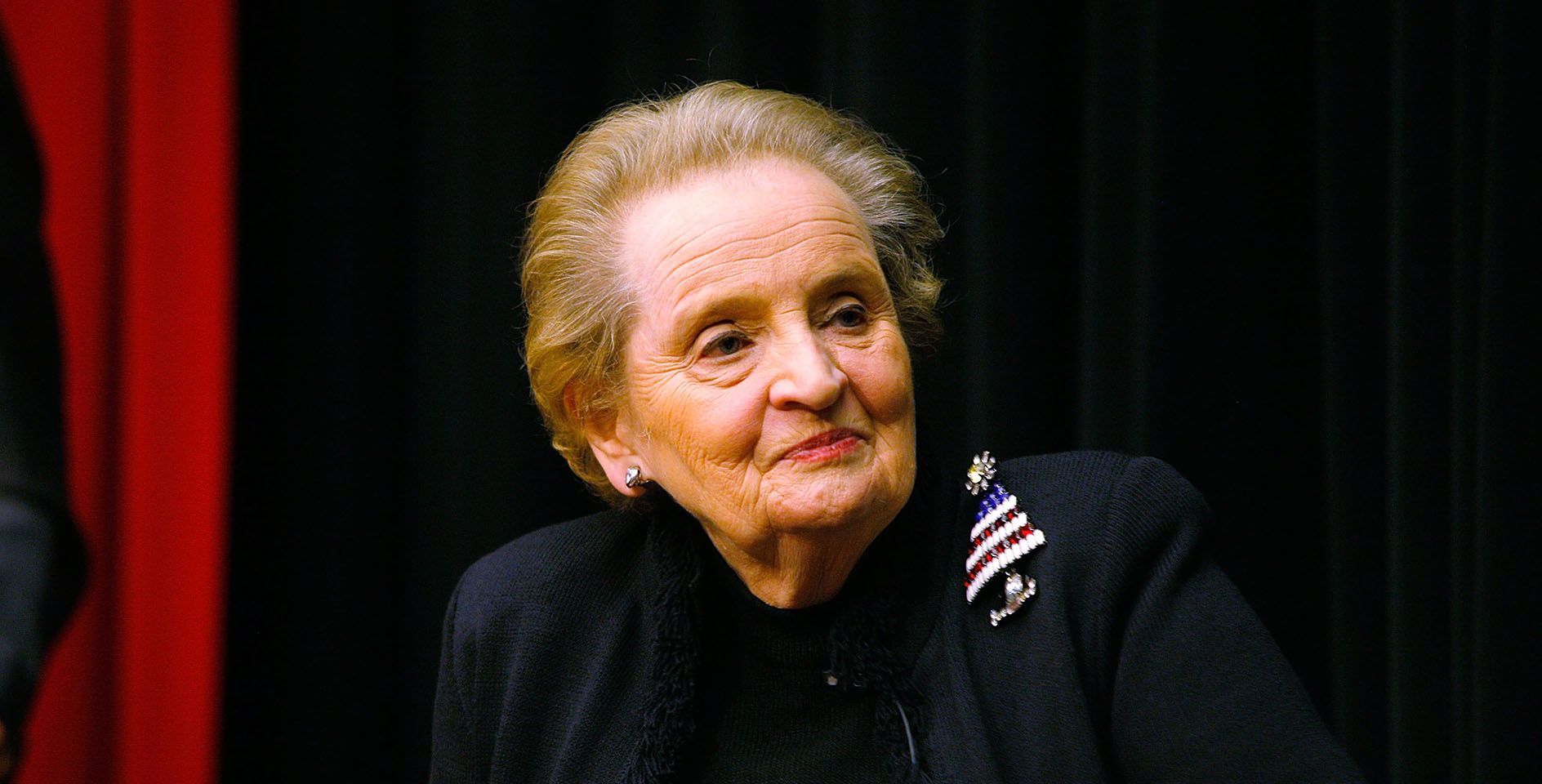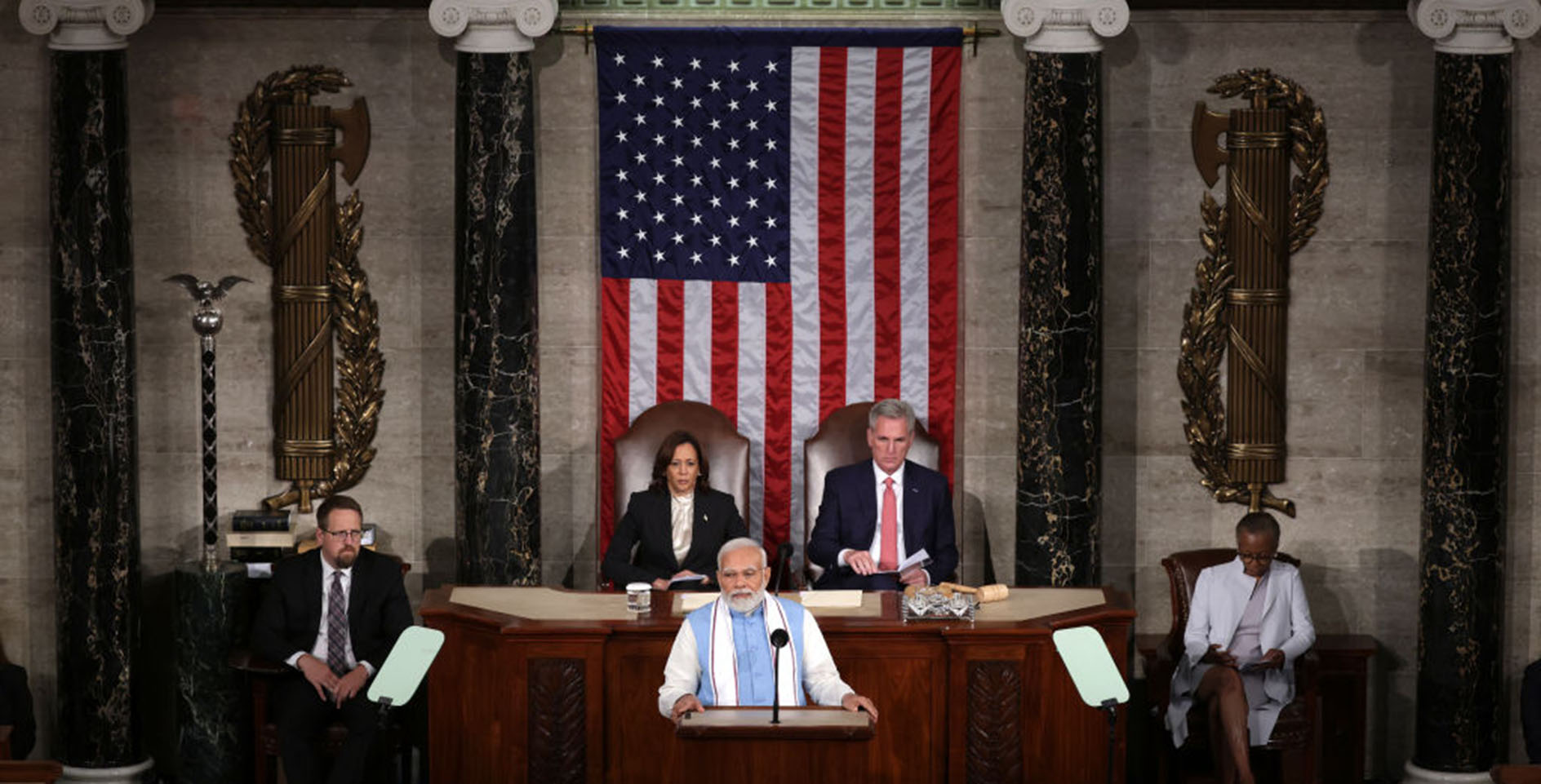The announcement of the death of former Secretary of State Madeleine Albright brought to my mind many very pleasant memories of my interactions with her during both her tenure as U.S. ambassador to the United Nations (1993-1997) and her service as Secretary of State (1997-2001).
As you would imagine, we had substantive disagreements about many important issues, foreign and domestic. However, I always appreciated her deep and abiding love for America — her adopted country.
Madeleine Albright’s personal story
Her personal story was a compelling one, a very American one.
Her family had to flee Czechoslovakia in 1938 one step ahead of the Nazis. As a young girl, she experienced the Battle of Britain and the London Blitz along with her family. She had to flee persecution along with her family once again when the Communists took over Czechoslovakia in 1948. She spoke eloquently about her first glimpse of the Statue of Liberty as she entered New York harbor and she and her family were granted asylum in America.
She went on to a brilliant academic career and worked her way up to serving with the National Security Council and then the U.N. and the State Department. She was the first woman to serve as secretary of state and the second foreign-born secretary of state. (Henry Kissinger was the first.) I doubt there is another country in the world where a foreign-born asylum-seeker could ascend to a position as exalted as secretary of state.
Secretary Albright understood down to her bone marrow the unique nature of her adopted country and how critically important American participation in the world was to the flourishing of freedom and human dignity. That conviction was underscored and reinforced when she discovered, as she was being vetted for secretary of state in 1997, that she and her family were actually Jewish, not Catholic, and that more than a score of her relatives were murdered in the Holocaust, including three of her grandparents.
This life story gave Secretary Albright an existential understanding of the stakes of the world if America does not fulfill its responsibility to be a friend and champion of freedom and human dignity. Secretary Albright believed, as do I, in “American exceptionalism,” and that it is not a doctrine of pride and privilege, but one of service and sacrifice.
Several years ago I was asked in a public debate, “What is your biblical evidence for American exceptionalism?” I replied,
“To whom much is given, much is required. No nation or people have ever been as blessed as the citizens of the United States. A blessing by definition is undeserved. I believe we have an obligation to be the friend of freedom and the defender of human dignity whenever we are asked and whenever we can. We can’t address all the world’s ills, but when we can make a difference, we should.”
I know Secretary Albright agreed with that belief because I asked her.
Friends of freedom, defenders of human dignity
I believe that we, as Christians, should prayerfully consider whether or not God has called some of us to serve in diplomatic roles, serving our government and the cause of peace and freedom at the same time. After all, Jesus told us, “Blessed are the peacemakers, for they shall be called sons of God” (Matt. 5:9).
As Christians, we should be willing to go to extraordinary lengths to bring about peaceful resolutions of conflict and pursue the good of our neighbors. As just war theory asserts, all “just” war must be defensive in nature. If all countries followed just war theory, there would be no wars.
As we look back on the past 120 years, it is clear that war has become increasingly deadly, and with the advent of nuclear weapons, war has become capable of leading to a near-extinction level catastrophe. In such a world, diplomacy and peacemaking should be an extremely high priority. We should always remember Winston Churchhill’s observation, “Meeting jaw to jaw is better than war.”
One major bonus of American diplomacy being oriented to prioritize freedom and human liberty is that it makes the world a safer and safer place. If you start with the calendar year 1800 and search history from then until now it is extremely difficult to find instances where a government elected by the people and accountable to their own people goes to war with another country where the government is elected by and accountable to their own people. In fact, I can find only one instance where that arguably occurred — the American Civil War.
I said it was “arguably true,” because the U.S. federal government was elected by white males only (rather than “the people”). And the Confederate government was similarly elected by white males only, excluding not only white women but also 100% of the 3.5 million slaves (38.8% of the total Confederate population) held in bondage in the 11 states of the Confederacy.
The best conclusion to be drawn from these facts is that to the extent we can maximize democratic self-governing countries in the world, the more rare warfare will become. As President George W. Bush so succinctly put it in his second inaugural address in 2005:
“The best hope for peace in our world is the expansion of freedom in all the world.
America’s vital interests and our deepest beliefs are now one. From the day of our founding, we have proclaimed that every man and woman on this Earth has rights, and dignity and matchless value because they bear the image of the maker of heaven and Earth.
Across the generations, we have proclaimed the imperative of self-government, because no one is fit to be a master, and no one deserves to be a slave. Advancing these ideals is the mission that created our nation. It is the honorable achievement of our fathers. Now it is the urgent requirement of our nation’s security and the calling of our time.”
President Bush then immediately added this clarification:
“And when the soul of a nation finally speaks, the institutions that arise may reflect customs and traditions very different from our own. America will not impose our own style of government on the unwilling. Our goal instead is to help others find their own voice, attain their own freedom and make their own way.”
I believe President Bush laid out in his second inaugural address, and Secretary Albright modeled for us, what is indeed “the calling of our time.” If we embrace this calling, through diplomatic means, we will leave behind a more peaceful, free, and just world to our children and our children’s children.










